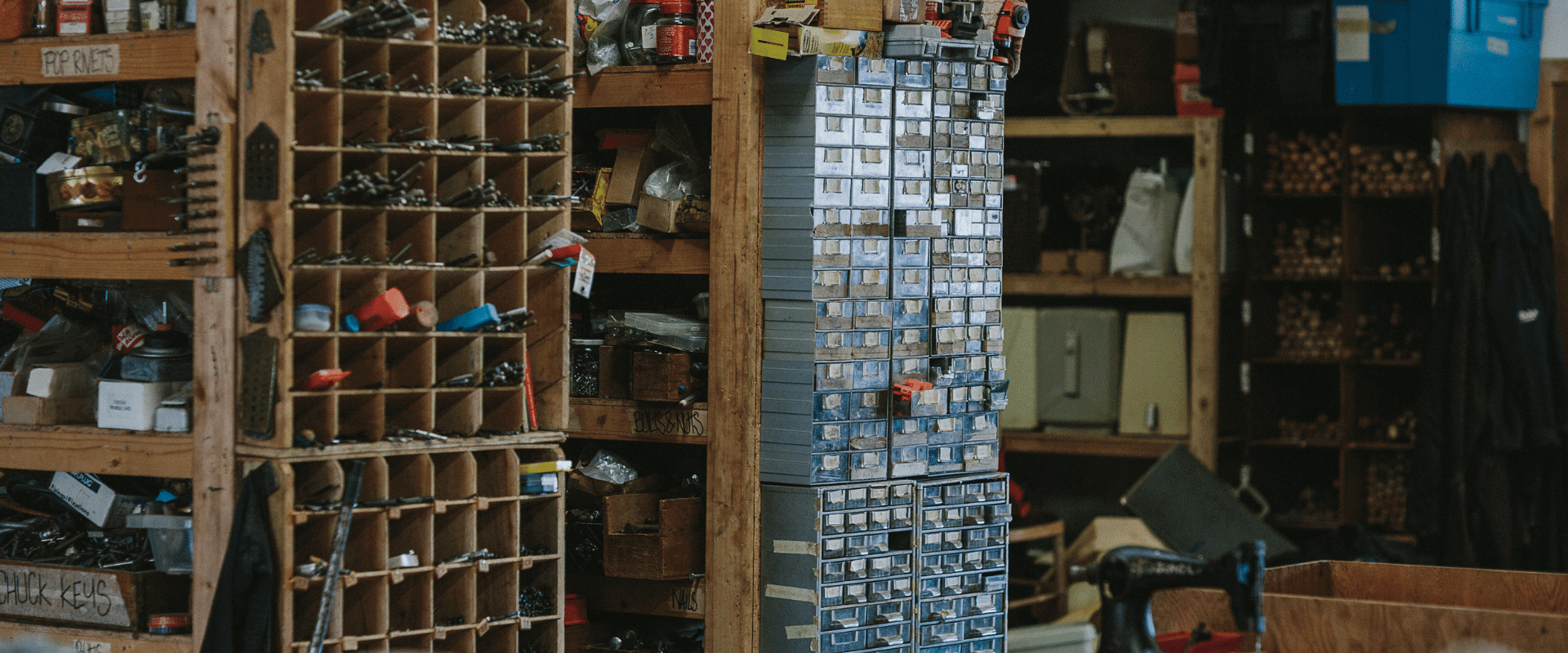A Peace of History
It all began back in the midst of a time in 1984.
Stephen Wood shared with his brother John Wood TFSR’s activities (Tools For Self Reliance) in Cardiff, Wales. Both of them instantly got inspired by this idea and wanted to do the same in Northern Ireland. That’s how John and Stephen decided to collect tools door to door and built up a stock of tools in Belfast.
They collected everything that is unwanted in people’s garages. Not long after they started to receive calls from local people to collect tools in Belfast. Thus in a few years time, they managed to ship these tools to Ulster Cares projects in Somalia, Sudan and Ethiopia.
Over the years our team organised more than 30 work camps and the first one was in 1985. It took place on the Newington St (Belfast) with a help of International Voluntary Service (IVS), Service Civil International (SCI), Quaker International Social Projects (QISP).
Most of these work camps were placed in Belfast although we had some in Dublin, Roscommon, Port Laoise, Derry and Berlin. Participants helped to repair tools as well as collected some with us.
In 1986 Belfast group joined TFSR and started to refurbish tools in a semi-derelict building on the Antrim Road. The room was like a fortress with a steel door and steel shutters bolted to windows. The floor in the middle of the room was not safe so all tools were stored somewhere around.
Even though the workshop wasn’t the greatest place it didn’t stop us from our mission. In this building, we prepared the first shipment that consisted of tool kits to Nicaragua. Occasionally we would also organise the “Collecting weekends” programme in Bangor, Holywood and Derry.
Our moving-in and -out history
Over the years we moved about five times. The bright side of it was that we didn’t have to pay rent. However, on the other hand, conditions of workshops were basic and to work there was quite risky.
In 1989 our weekly meeting on Monday evening was placed in a derelict building owned by the Belfast Centre for Unemployed. In 1990 we were based on the top floor (attic) of IVS. After that, we moved to the Diarmuid family’s garden shed (no insulation, heating oil or water). And then to a big house with a huge garage in Salisbury Ave. Our team was spending every Sunday afternoon fixing tools and the leaky roof that we got with the building.
Despite all difficulties, we became more skilled and ‘tooled up’. Back then we also managed to increase the number of donated tools that we sent out to projects in Africa.
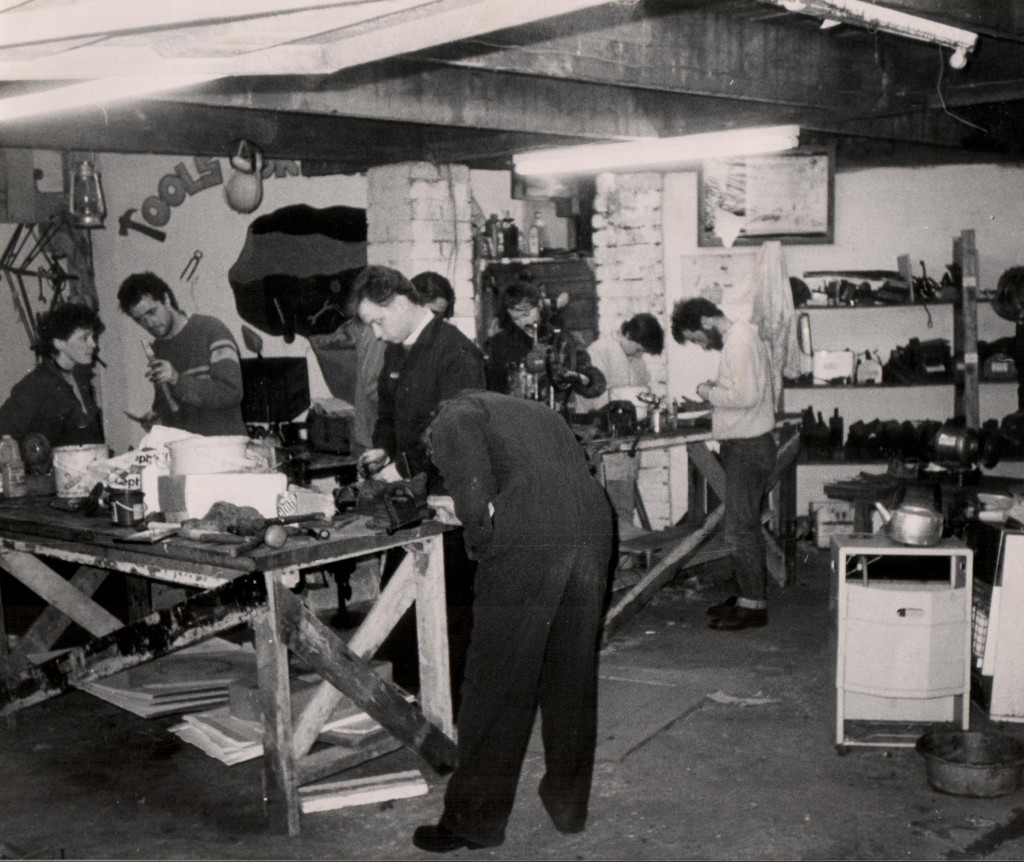
The workshop in Salisbury Av in a friends garage in full flow 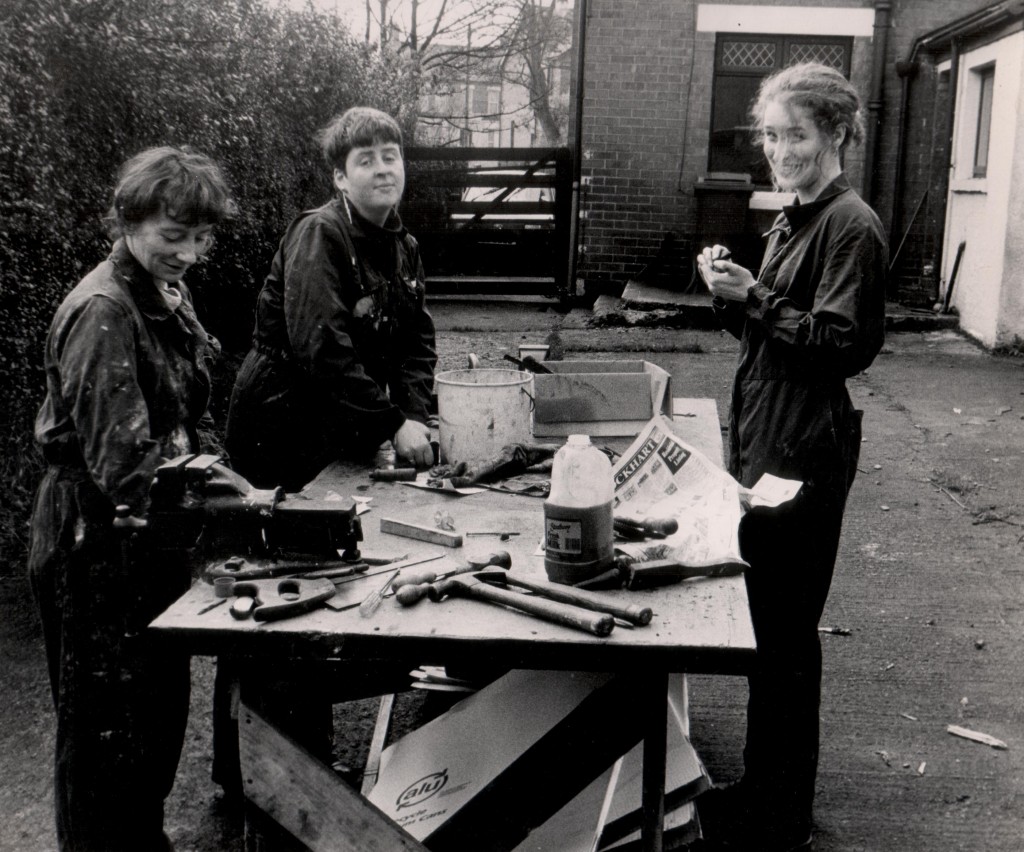
When the sunshine let us work outside 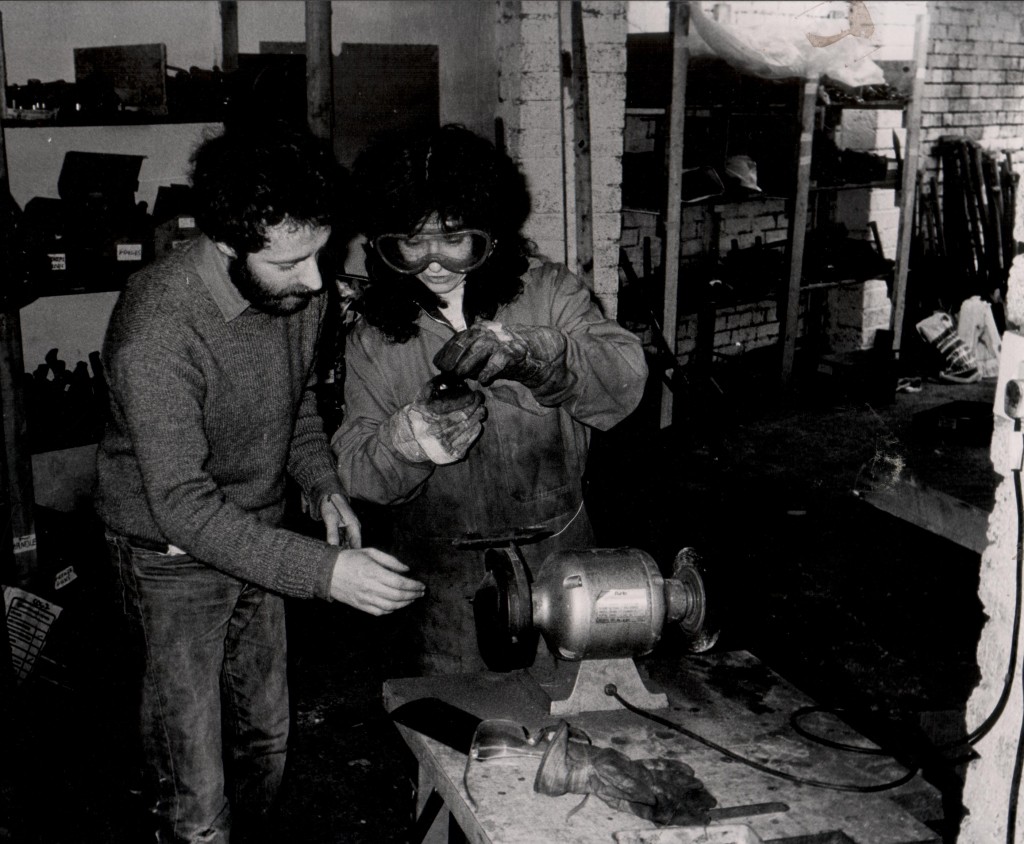
What joy to have a full set of hair
How it all started
The group used to meet on a part-time basis but we were continually searching for permanent premises.
In 1991 we had a discussion with TFSR and they advised us to set up an independent organisation so that we could develop the same project in Northern Ireland.
In June 1992 the idea of charity in Belfast was born. We drew up business and development plans and after many meetings, we finally chose the logo.
Our main aim was to open a full-time project and raise funds to pay for the building and 3 employees. That’s how we started to raise funds within gigs, pub quizzes, jumble sales, raffles and sponsored bike rides to Stanford and back.
By the middle of 1993, we raised a quarter of the budget and decided to open the project without any staff but with a rented building. That year Stephen also visited the Iringa region in Tanzania and became good friends with the local Small Industries Development Organisation (SIDO) office. We managed to create a partnership with this organisation later.
On the 27th of May, 1994 Tools For Solidarity as an official charity in Belfast has opened on the Crumlin Road. It was also the time when our first long-term international volunteer Dunla, from Finland, arrived!
Tara, Sile, Rita and Annie were also volunteers who came over from Dublin to help and prepare the workshop. Our first EIRENE volunteer, Martin, arrived in 1995 to do peace (civil) service here instead of military service in Germany. That was the beginning of our international volunteers’ journey.
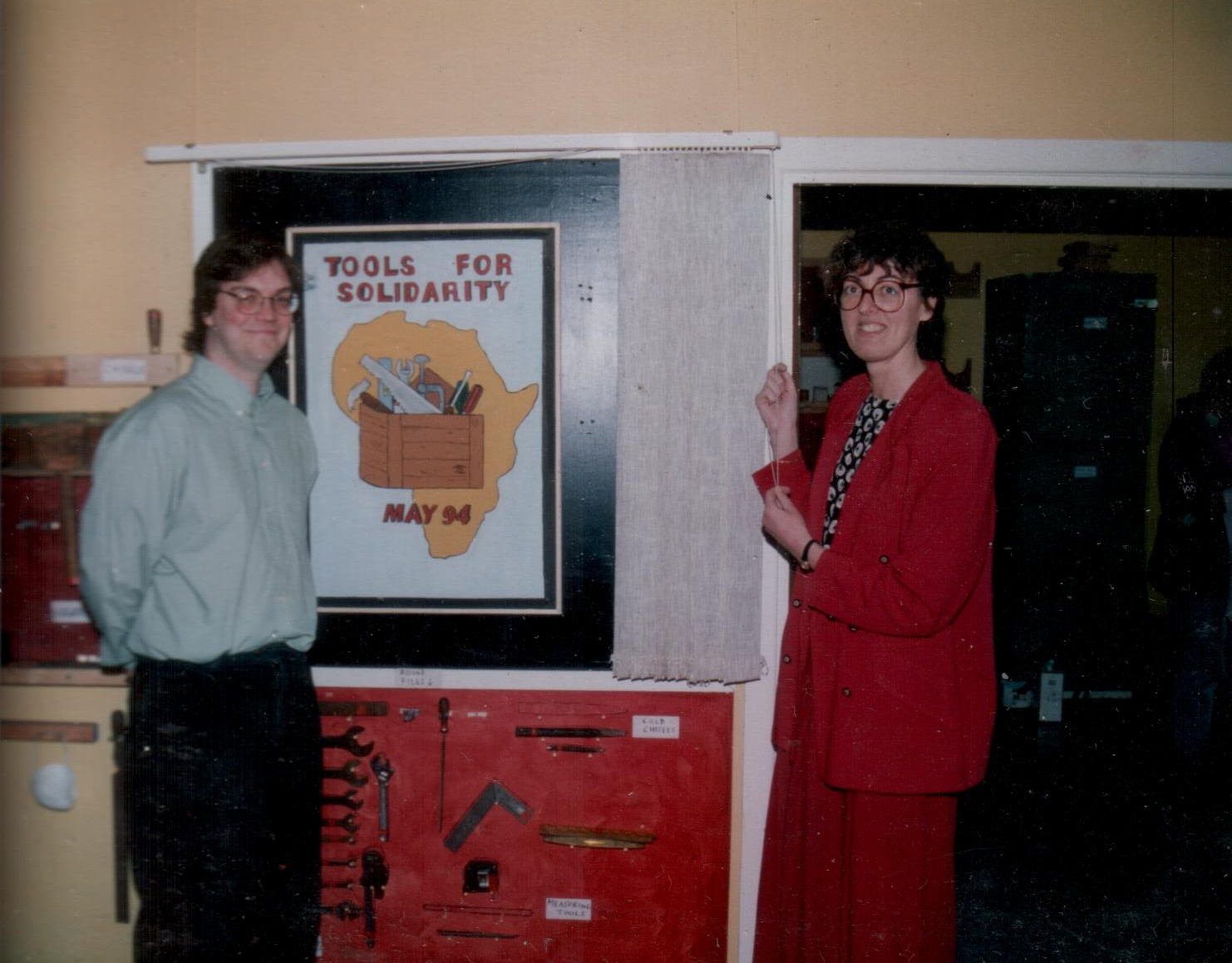
Our first projects abroad
In 1995 we sent out 367 tools to a project in Uganda for SASO (Sustainable Agricultural Support for Orphans) project. During next year our sewing machines journey began! We received a few machines that we decided to refurbish. Even though we had little experience in it. in 1997 we launched a campaign to collect sewing machines. Our progress was visible so we decided to send donated sewing machines to support youth groups in Singida, Tanzania.
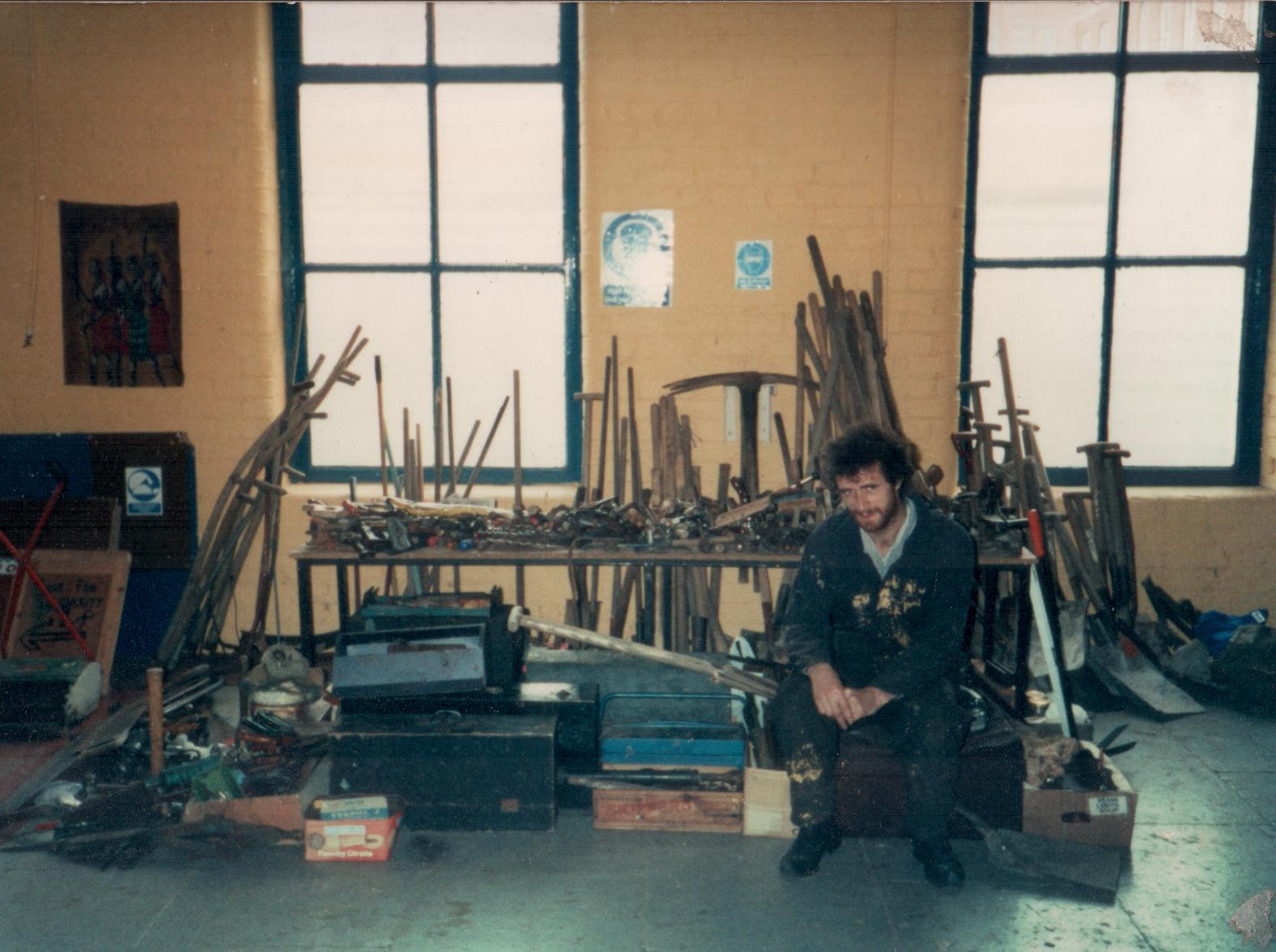
As years passed by we improved our techniques and started supply sewing machines and tools to various projects in Tanzania and Uganda.
In 2006 John visited projects in Uganda and Mwanza. Back then it was our international destinations that we sent out tools and sewing machines to. Most of the projects were aimed at women and people with disabilities. Following this trip in 2007 Mwanza Sewing and Training Centre (MSTC) opened, and in 2012 we started a pilot project in Uganda called Women Rights Initiative (WORI). Since then our Belfast charity works in partnership with these two organisations in order to prepare shipments that occur almost every year.
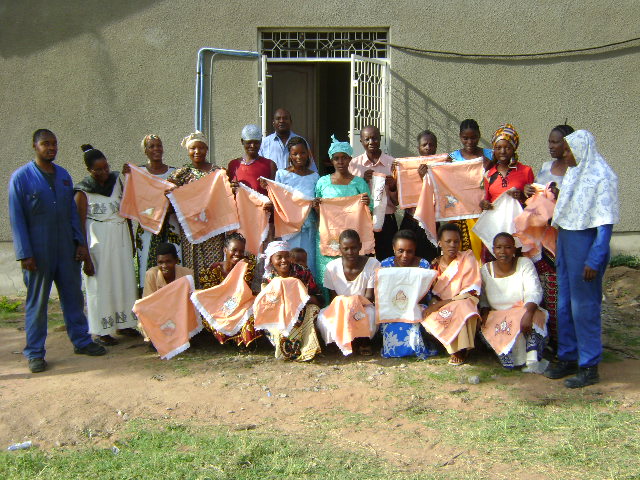
As we mentioned above, Tools for Solidarity always dreamed of having their own premises instead of rented buildings. And finally, in November 2013 a perfect premise was settled upon. March 19th, 2014 became an important date in the organisation’s history as we were handed keys to our new home!
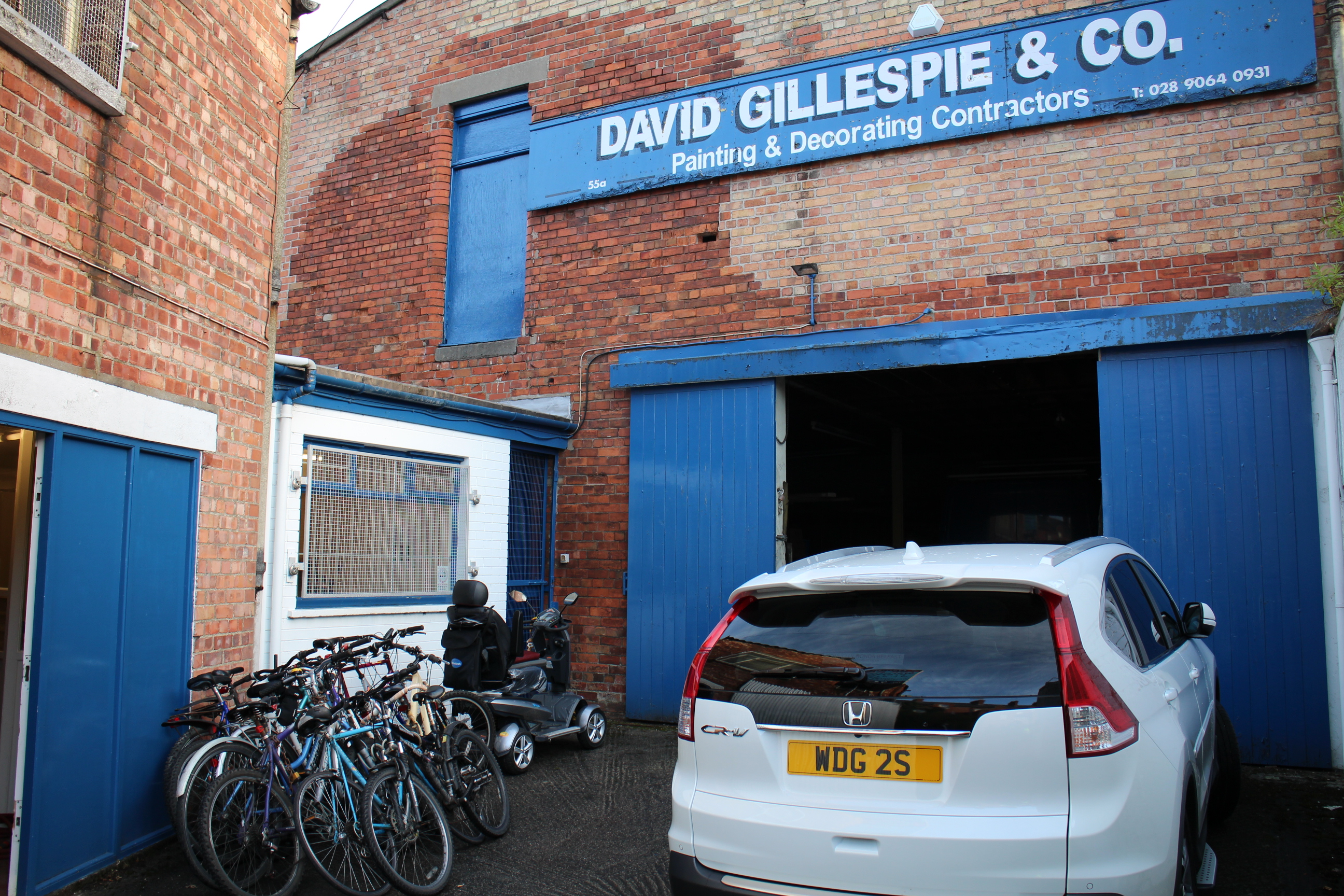
The new workshop is an old red clay brick warehouse that has served many purposes over its lifetime. Nestled snugly behind houses on all sides in its South Belfast neighbourhood on the cheerfully named Sunnyside Street.
We did a huge work to renew and transform the building. The first issue we were faced with is how to use the space correctly. There were a lot of facts to consider. At that time we had hundreds of knitting and sewing machines as well as countless hand tools. Let’s not forget about our need for shipment storage, workspace, office, grinder room and kitchen at the very least.
Old dusty walls were refreshed with some paint, new electrics were being put in the place and our building slowly but rightly started to look more like a charity that you can visit today in Belfast.
What Do We Do
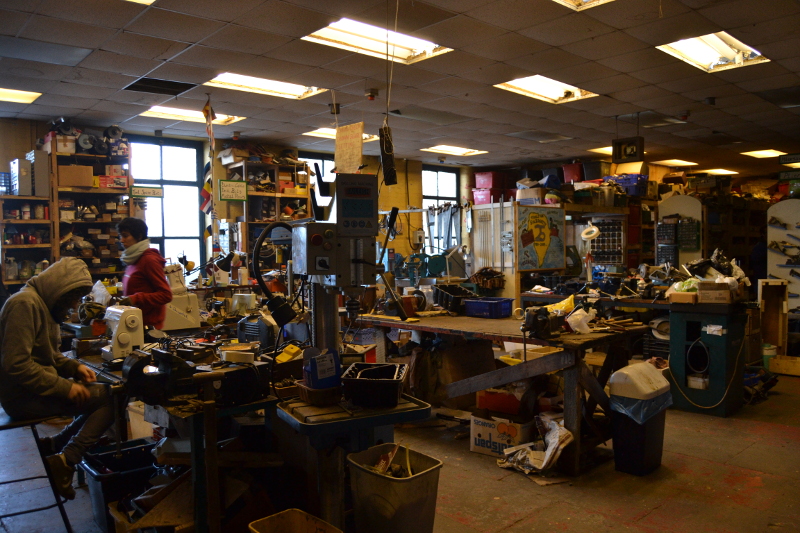
Tools for Solidarity supported by the Service civique, EIRENE and local volunteers that work together to prepare shipments. People always wonder what exactly do we do. Our work includes:
- Refurbishing and fixing sewing machines, tools and treadles
- Fixing knitting machines, leather working machines, industrial machines and over-lockers
- Building wooden boxes to store sewing machines and tools
- Sort out materials, wool and sewing machines attachments
Our subgroups
- Publicity. We publish a quarterly newsletter to promote the organisation’s work, publicise widely around Belfast area that we collect tools and sewing machines and produce leaflets to explain our work in TFS. Our volunteers also update social media channels and this website.
- Education for Sustainable Development. We work with students from primary/secondary schools and youth clubs with the main aim – to raise awareness in topics such us poverty, inequality, exploitation of natural resources and fair trade.
- Fundraising. We develop collection campaigns and write funding applications to be able to continue running our projects.
- Supported volunteers group. We always try to find any suitable work for our supported volunteers in the workshop as it helps them to improve their mental health.
- Partnerships. We review the work that needs to be done, co-ordinate and plan all work that take place throughout our partnerships and projects overseas.
We are happy to have a chat with anyone who is interested to work with us. It doesn’t matter if you live in Northern Ireland or not. To find out more, contact us!
